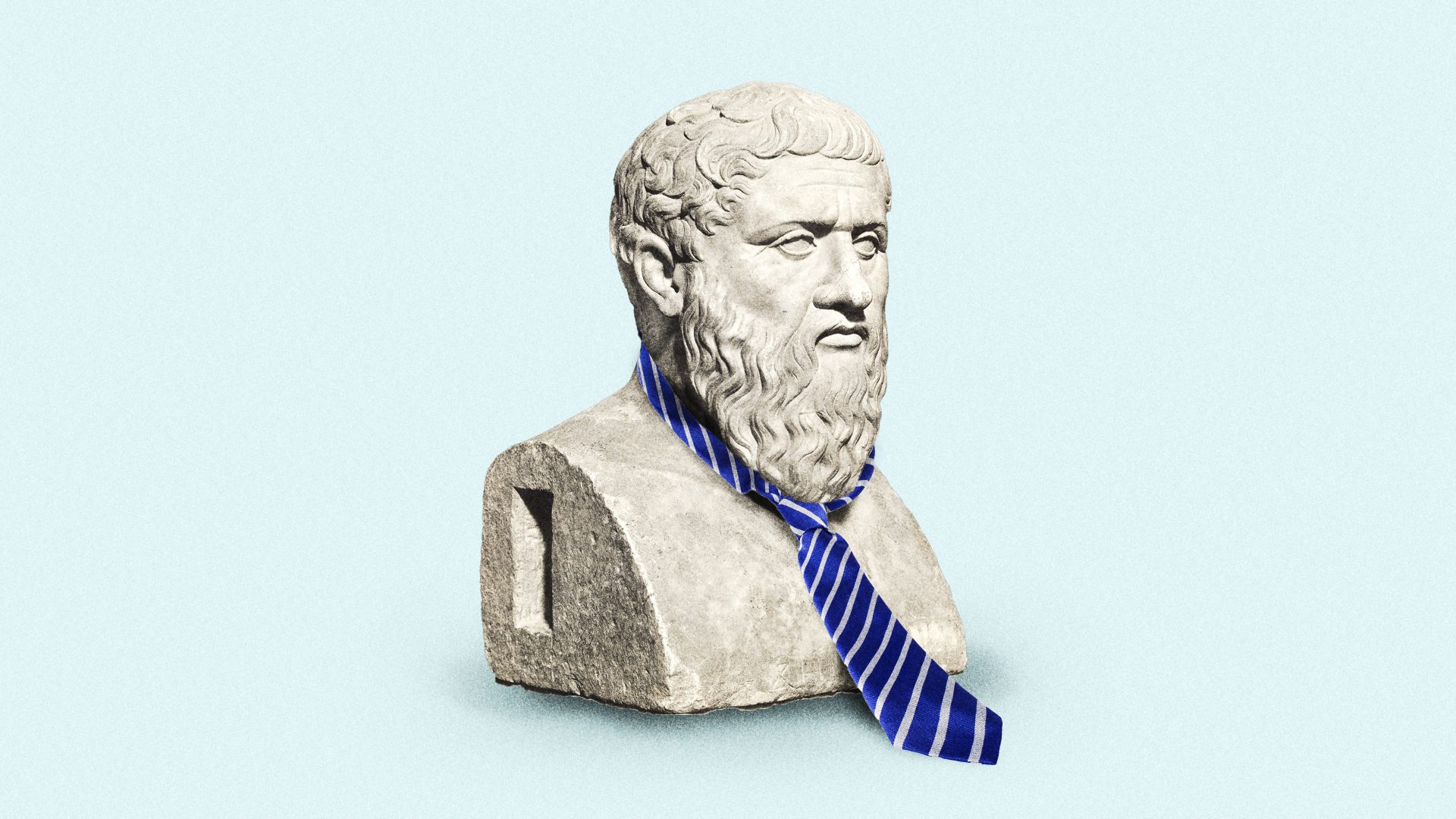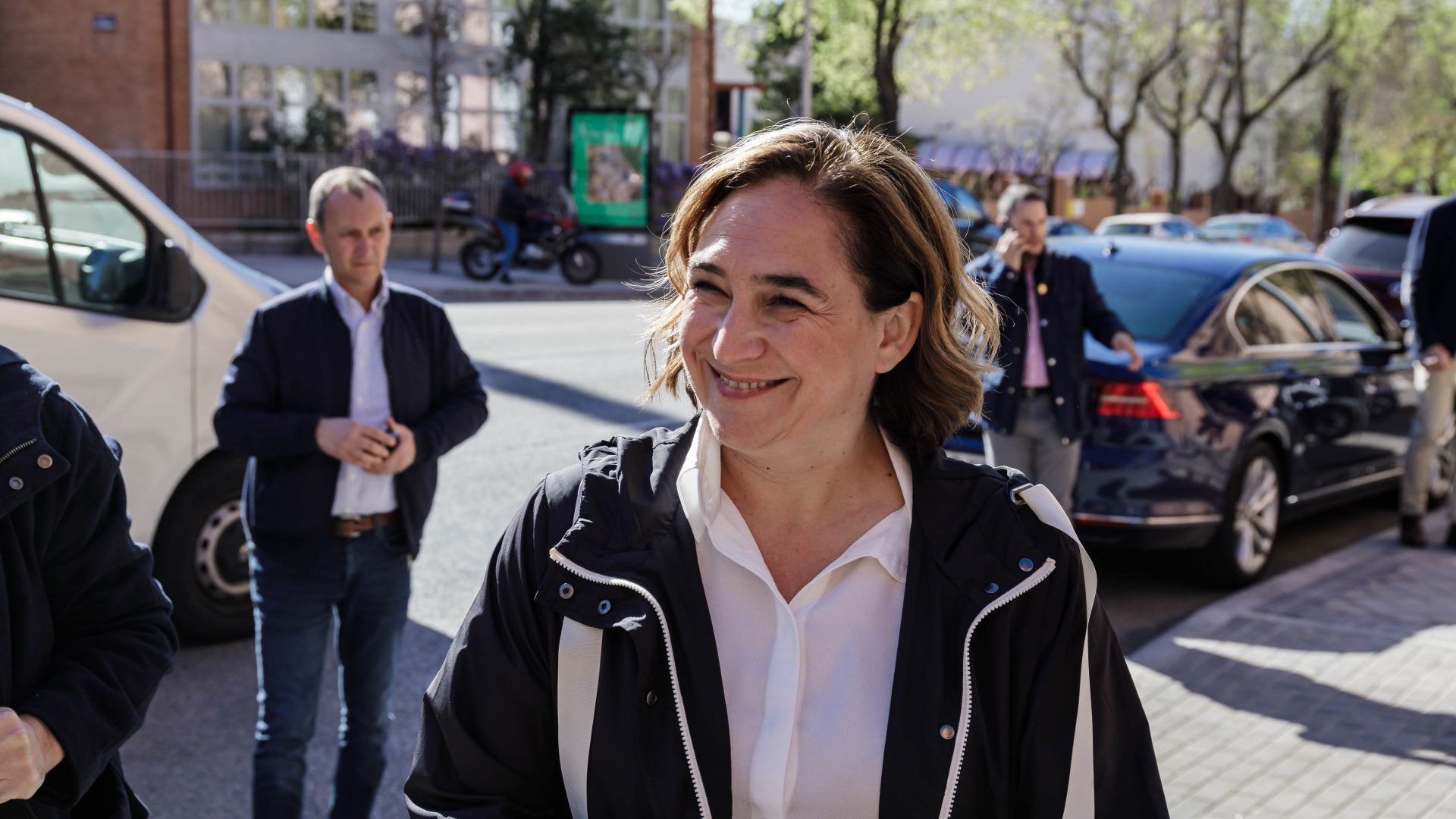The 2021 documentary Young Plato focuses on Kevin McArevey, the headteacher at a primary school in the Ardoyne district of Belfast, who uses philosophy to try to break cycles of violence in a community that has been damaged by a history of sectarianism conflict exacerbated by problems with drugs and poverty, and where there is a very high incidence of youth suicide. McArevey has a contagious passion for philosophy, a passion as strong as his love of Elvis. But he also has a method. He is trying to help children develop the critical reasoning that might help them escape from these cycles.
Part of what teaching philosophy means in this context is establishing ways of discussing ideas in the classroom, a kind of etiquette of conversation that includes a willingness to listen to and to learn from each other while debating questions such as “Is it possible to think about nothing?” or “Is time travel possible?” “Listen. Think. Question,” is the motto. Don’t shut down the conversation. The method is essentially Socratic, and involves a willingness to explore reasons and see the implications of different ideas. It also legitimises a questioning of received opinions – a feature of philosophy that has sometimes led to its suppression.
Later in the documentary, McArevey and the nine-year-old boys in the class compare their own strategies for coping with anger (ranging from listening to music to screaming into a pillow) with those recommended by Seneca, the ancient Roman Stoic and near-contemporary of Christ, who declared anger a useless emotion. The children discuss these with intelligence, creativity, and humour. McArevey even goes so far as to encourage students to question the attitudes of their parents towards violence, a potentially dangerous strategy, but one motivated by a heartfelt desire to move beyond patterns of physical confrontation as a response to disagreement.
Unsurprisingly, classroom discussions don’t prevent violence breaking out in the playground from time to time. One student even hits a teacher. McArevey and his colleagues discuss what happened with the young culprits, talk through what they should have done, how they might have coped, and how they can make amends, and break the habitual resort to violence when events trigger them. It’s a blend of philosophical reflection and counselling that might produce effects in the long run. At its centre is a willingness to treat these young children as capable of reasoning and reflection on what they do, and to change their behaviour.
The philosophy for children movement that inspired McArevey has its recent origins in Matthew Lipman’s work in schools in the US from the 1970s onwards. He developed what became known as P4C (Philosophy For Children), which emphasised critical thinking in groups stimulated by a story or imagined situation engaging in a community of inquiry, in a tradition that traces its origins to the work of the philosopher and polymath CS Peirce.
Children who studied P4C often improved grades in other subjects, too, and these demonstrable benefits made it easier to sneak it into the curriculum. More recently in the UK, Emma Swinn and Peter Worley, through their organisation The Philosophy Foundation, have made a major contribution, educating and supporting teachers (including McArevey).
Behind this is a commitment to the idea that education shouldn’t be a matter of filling empty vessels, but of equipping children with skills and ways of discussing ideas that will transfer to a range of areas. Philosophy, with its emphasis on giving reasons, debating alternatives, and assessing competing arguments, should be at the heart of education rather than its periphery. At its best philosophy can be, as Lipman described it, “a model of creative, yet disciplined intellectual inquiry”.
But what if your children aren’t taught philosophy in school? Two recent books by academic philosophers have both been inspired by conversations with their own children. Elizabeth Cripps in Parenting on Earth: A Philosopher’s Guide to Doing Right by Your Kids – and Everyone Else puts her cards on the table in the title. She emphasises the responsibilities of parents in modelling and discussing how we should live in a world of limited resources, climate change, and short-term local thinking. Scott Hershovitz, in his delightful Nasty, Brutish, and Short: Adventures in Philosophy with Kids, recounts conversations with his sons about some of the big philosophical questions – God, infinity, authority, and the nature of morality, to name a few. As he puts it: “Kids are clever and creative thinkers; if you show them that you value that, you can sustain their curiosity and willingness to question what’s around them.”



